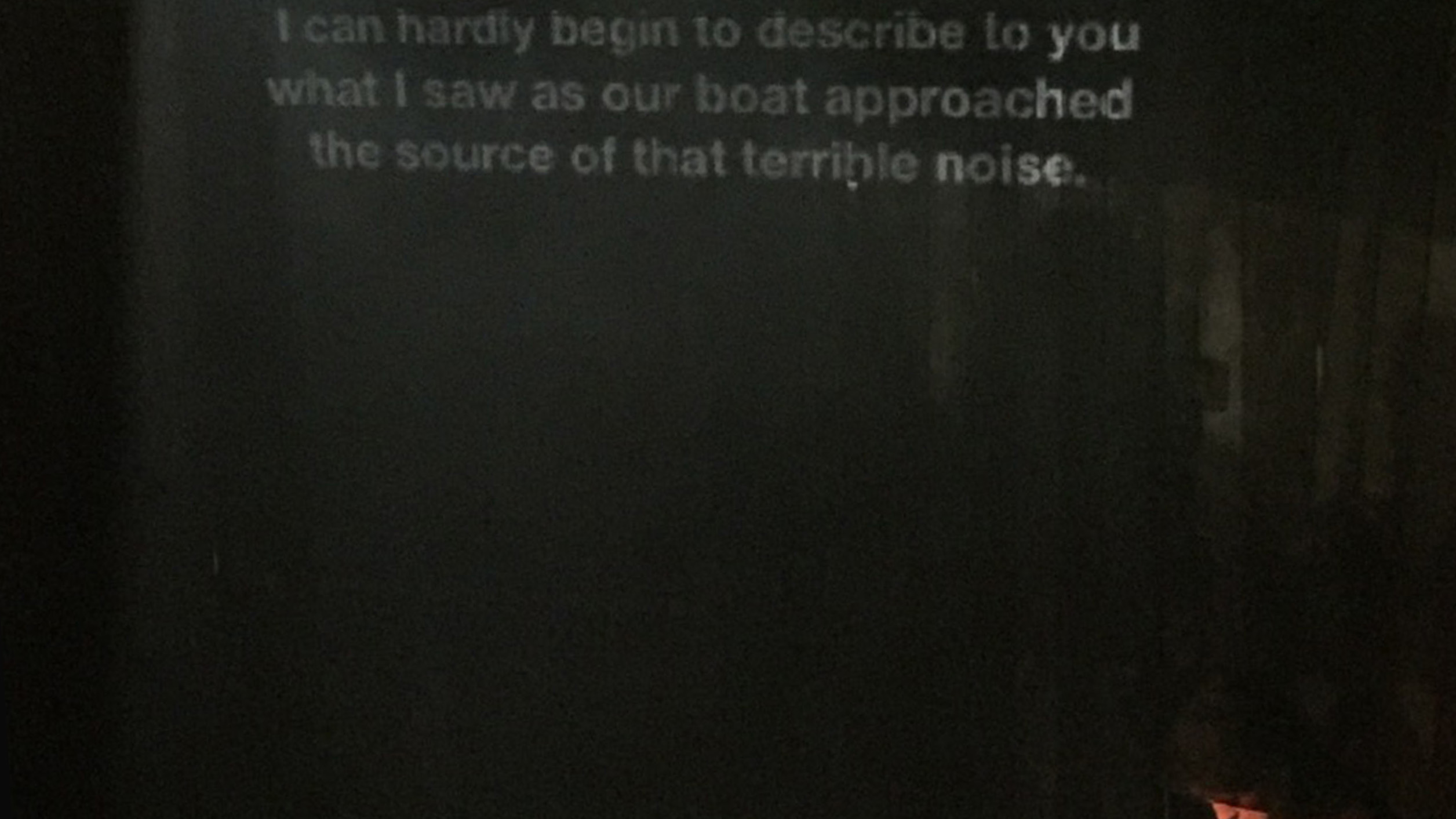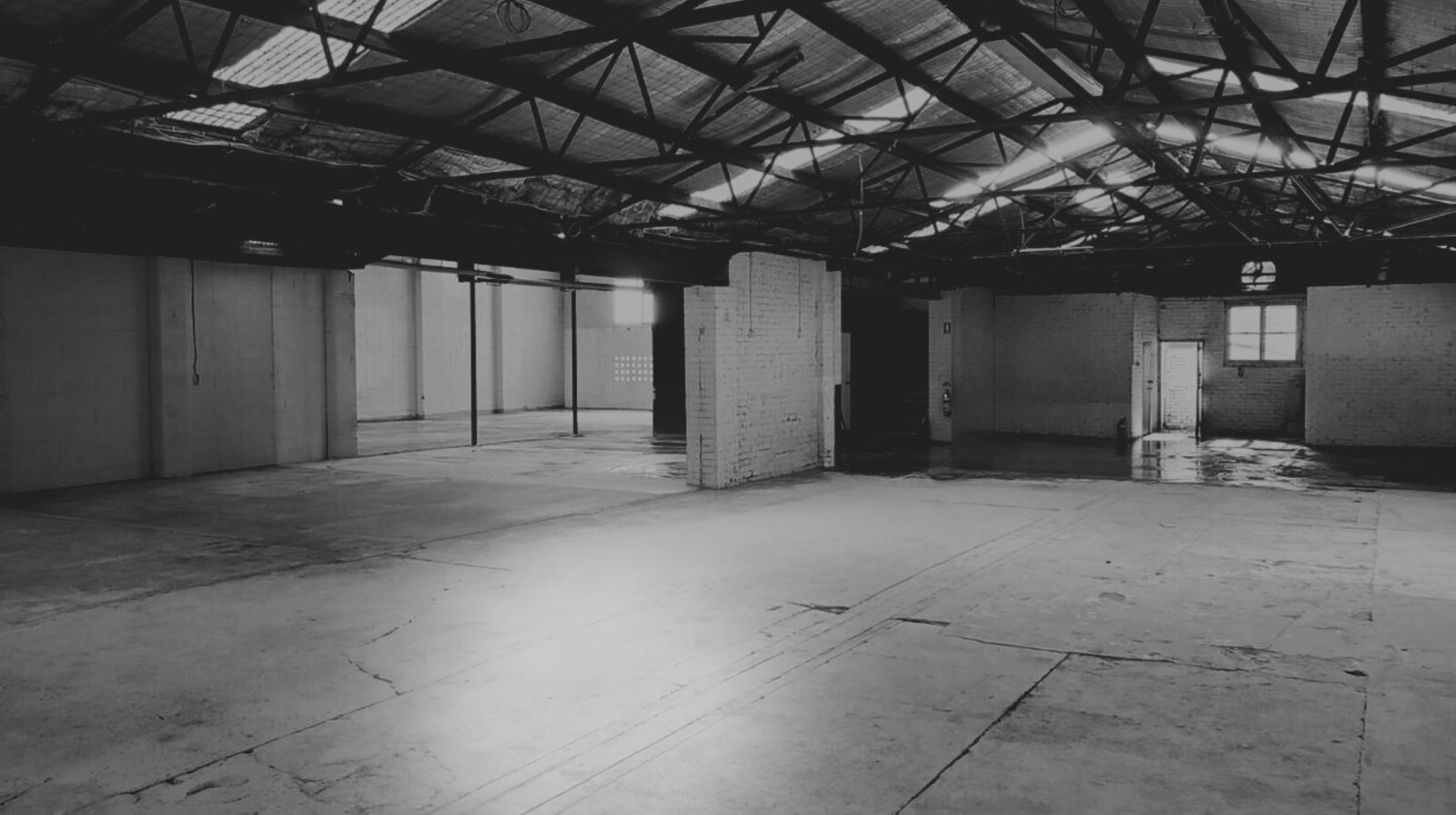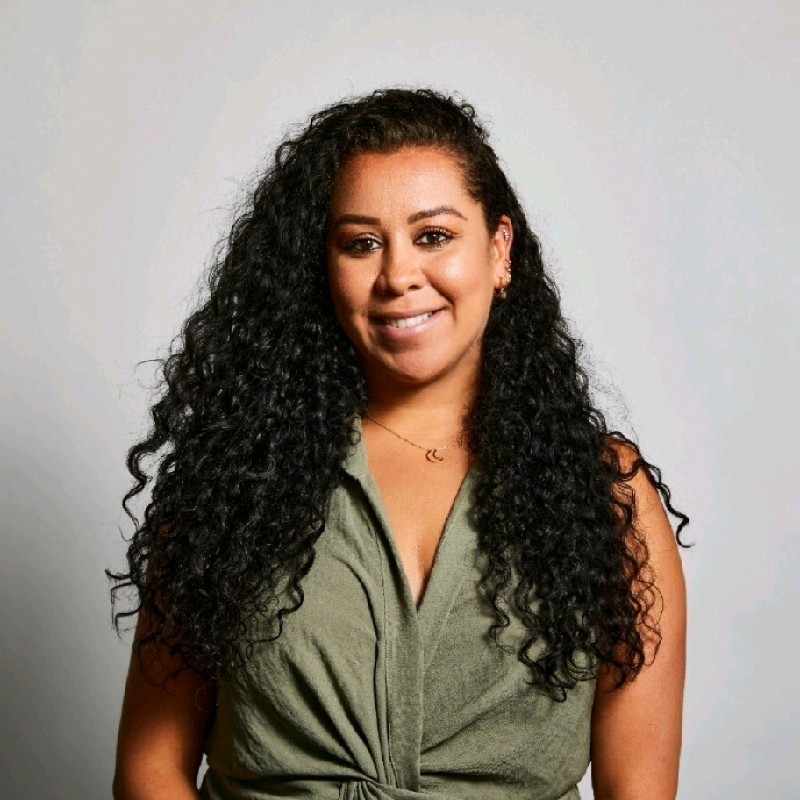
Reflecting on ‘Black Crows Invaded Our Country’
26.03.2017
Professor Danielle Celermajer
Sydney has been battered by torrential rain for weeks. Unusual rain, lashing rain, sometimes deafening rain. And in the background, rain that occurs to many of us through the trope of climate change; and so terror-inducing rain. Shuttered in the round-house (that site in the University of Sydney vet school where horses were once opened up before the scientific, objective gaze of students) the sound of driving rain and raging winds went on past the point of comfort. To the point where my body began to imagine what it would be like to experience unconstrained elements unsheltered, entirely exposed. Not only to not know when the rain was going to end, but not to know when one’s own exposure or the exposure of one’s children was going to end; or if it was going to end.
Projected against the wooden gate (through which the horses would once have been lead) are the extracted words from the prologue of Emma Jane Kirby’s book The Optician of Lampedusa. The optician witnessed people drowning in the ocean, fully naked to the cold of the water that pulled them from below, and the wind that tore them from above. Knowing that he could not even come near capturing what he witnessed or experienced, he conveys fragments that we (removed still further) might be able to assimilate: a hand reaching up from the ocean, desperate for another hand to reach back; bodies now on board vomiting and shitting because that much trauma is not followed by a sweet sigh of relief; the wrench in the guts as he drove his boat away, still hearing the cries behind his back until they ceased; although once heard, they never cease.
“Do you understand what I’m trying to say to you? Maybe it’s not possible for you to understand because you weren’t in that boat.” The Optician of Lampedusa does not know how to convey the unmitigated horror of what he saw to be true, truths that remain present to him, because they are still happening.
How is it possible to ‘make understood’ the truth of what is happening in our world? Many of us are asking this question. We ask it, in part because privately confronting these truths is intolerable. When we share stories, the world becomes a little more bearable. But mainly we ask this because we believe that only an informed and awakened polity will take the actions required to transform our shared condition. How is it possible to communicate the structural complexity that drives carbon emissions, destroys biodiversity, and detonates into conflicts that drive millions of humans and non-humans to flee what was once home? How is it possible to convey how we feel when we learn that a species that we have loved and shared lives with will be, or already is, no longer?
In the academy, we don’t do a bad job at the first task – say explaining the relationship between neoliberal global capitalism and the constitution of a new mobile precariate; but the heavily footnoted texts that link discursive and economic structures with multiple flows of lives, materials, and risk are almost always emotionally desiccated, and they speak as if their readers did not have bodies. The dancer can exquisitely approach the affective texture of a parent mourning their child’s death during an escape from a warzone; but the individualisation of the narrative omits the macro-forces that took them to where death became inevitable. Here’s the rub though – authentic understanding, or perhaps more importantly, understanding that would be oriented towards committed and effective action, requires structural stories that are infused with affect. And as David Ritter said at the end of this performance, stories also infused with the love that wants it to be otherwise.
Black Crows Invaded our Country is unsettling. Deliberately so because, as Thom Van Dooren reminds us during the performance, settlement is a presumption. Even when we open our settled-ness to others, or urge our ever more padlock governments to act with hospitality, we leave unchallenged the background assumption that our settlement is by right. To characterise a movement as “invasion” and a place as “our country” is, after all to naturalise and eternalise a highly contingent and time specific arrangement and constellation of power. The language sutures our always fragile conviction that there is an absolute distinction between the ones huddled inside the boat and ones flailing in the water, those tucked in their homes and those exposed to the tempest, those on this side of the border and those not, those who are human and those who are not.
Thinking one’s time unique, like thinking one’s identity or value unique, is a human foible. Nevertheless, we can without arrogance say that these times demand of universities ways of understanding and communicating that go beyond those we have historically embraced. In this sense, we might all receive Black Crows as a welcome invasion, to paraphrase the words Michelle St Anne spoke at the beginning of the performance, a possible presence, suggestive of another way of relating to, of crafting worlds with, others.
For details on the performance, click here.
—————————————————
Danielle Celermajer is a professor in the Department of Sociology and Social Policy at the University of Sydney, with a specialization in human rights and a particular interest in the structural underpinnings of injustice.

